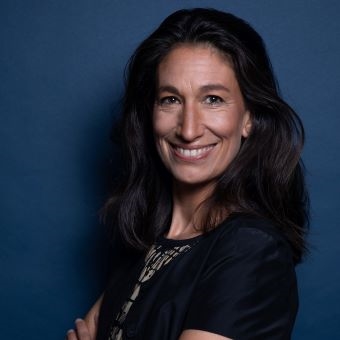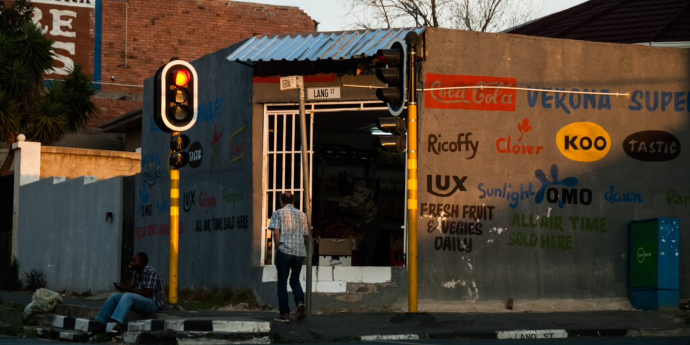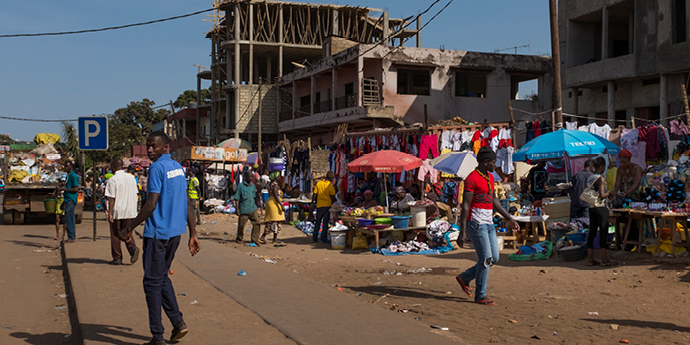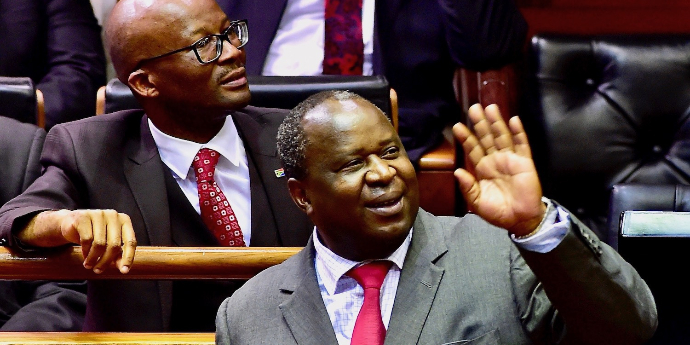Postgraduate Diploma in Development Finance
Leveraging finance for sustainable development in emerging economies
Building capacity to mobilize & align finance for development and sustainability.
Intensifying societal pressure, changing expectations, and the emergence of new types of risks are reshaping the role of development finance. The challenge is to mobilise and align finance for sustainable development, and to develop capacity to build inclusive and resilient economies.
The Postgraduate Diploma in Development Finance is a specialised programme designed for those interested in finance as a lever for sustainable development.
The programme is delivered in five modules organised around three main objectives.
- Provide a foundational understanding of sustainable development, banking and financial systems in emerging markets.
- Provide insights into core management practices of development finance institutions.
- Build capacity for impact through environmental finance and sustainable investment instruments, trade, and public-private partnerships.
The programme blends traditional lecture sessions with case studies and interactions with leading practitioners from across the African continent. It is ideal for graduates or professionals aiming to work in financial institutions, government or NGOs promoting sustainable development and resilience in emerging markets.
* Application & Course fees are provisional for 2025, and are subject to annual UCT council approval. If you would like more information on fees for this programme, click here.
uct gsb PGDIP IN DEVLOPMENT FINANCE overview
Learn more about the annual term dates for the UCT GSB PGDip in Development Finance programme. The UCT GSB PGDip in Development Finance comprises five compulsory courses over a 5 month period. Learn more about the UCT GSB PGDip in Development Finance. Learn more about which attributes and qualifications are required for the UCT GSB PGDip in Development Finance. A step-by-step guide on how to apply for the UCT GSB PGDip in Development Finance programme. The UCT GSB PGDip in Development Finance curriculum is made up of five compulsory courses. Read more on the Postgraduate Diploma in Development Finance courses. The UCT GSB is committed to broadening access to postgraduate education through funding and scholarship opportunities. Explore funding options available to PGDip candidates.
INNOVATIVE TEACHING
Our teaching, learning and research is directed towards building a more economically prosperous, equitable and integrated continent
Teaching on the Postgraduate Diploma in Development Finance draws heavily on case study analysis with minimal exploration of theoretical concepts.
It provides those who work in, or are intending to work in, development finance institutions or support organisations, government or the financial sector a thorough understanding of the field.
What our students say
Learn with the best
Our Internationally acclaimed researchers and teachers are all dedicated and gifted individuals who contribute directly to UCT GSB's reputation of excellence.

Programme Director
Dr Cecile Feront is a Senior Lecturer at UCT Graduate School of Business, a research fellow at the Stellenbosch University’s Centre for Sustainability Transitions, a collaborator at the Embedding Project, and an associate at the Sustainability Institute. She teaches sustainable investment and environmetnal finance, and researches how organisations embed sustainability in their strategy. She has gained broad experience in strategy and management through her past roles in the software industry and renewable energy sector. She teaches the course: Environmental Finance and Sustainable Investment. Dr Feront holds a PhD in Business Administration from UCT Graduate School of Business, a BPhil Hons and an MPhil in Sustainable Development from Stellenbosch University (both Cum Laude), and a Masters (Economics and Finance) from Sciences Po Paris. She also holds a degree in coaching from UCT Graduate School of Business.

Admissions
Derek is responsible for the UCT GSB’s recruitment strategy for its academic programmes and works closely with various stakeholders.


Programme Coordinator (Coursework)
Samantha has been part of the UCT community for over 20 years, dedicating her career to supporting students and ensuring the smooth running of academic programmes.FREQUENTLY ASKED QUESTIONS
You will benefit from the PGDip in Development Finance if you:
- Are a graduate of a commerce-related degree and are looking to enter the development finance field
- Work in various areas of government such as finance, policy or commerce
- Work in an NGO
- Are interested in the UCT GSB MCom in Development Finance but do not have the requisite four-year honours degree
The first block of the programme is intensive and immersive. Four of the five compulsory courses will be completed. Students will then be required to submit separate assignments for each course before the second block starts. In addition, they will be required to sit for exams before the start of the second block.
Once you graduate from the UCT GSB you will join our alumni network which is a dynamic forum that comprises more than 23 000 past UCT GSB students in 68 countries worldwide. Many of the UCT GSB’s alumni hold key positions in top companies or have started their own successful businesses. Alumni play a vital role in supporting and encouraging more recent graduates to follow in their footsteps and UCT GSB students who find employment after graduation - particularly internationally - frequently do so through alumni contacts.
TAKE THE FIRST STEP TODAY
Acquire new competencies and move your career to the next level!
Ideas Exchange

Development finance: how it works, where it goes, why it’s needed
Development finance addresses the failures or limitations of financial institutions such as commercial and investment banks. It is the invisible glue that connects public and private financing for projects that have social, economic and environmental outcomes.
Read Article
Export finance and development finance: How Acre Impact Capital is providing a nexus for convergence
Bringing development finance actors together is key to unlocking sustainable infrastructure growth where it is most vital.
Read Article
Trump’s USAID Freeze: A Wake-Up Call for South Africa’s Aid Sector
Kay Lala-Sides, an MPhil Inclusive Innovation graduate and PhD candidate at the UCT Graduate School of Business, examines the impact of Donald Trump’s suspension of USAID funding to South Africa and what it means for local organisations. With donor scrutiny increasing, she highlights the urgent need for stronger governance, strategic fund management, and accountable leadership to ensure aid effectiveness. Can South Africa’s social sector rise to the challenge?
Read Article
Breaking Barriers to Sustainable Finance
From navigating infrastructure challenges to meaningful finance, Bruce Jelley shares his experiences and insights about the MCom in Development Finance at the UCT Graduate School of Business, and how it is reshaping the way South African developers approach sustainability.
Read Article
The Development Activist
From humble beginnings to pioneering public leadership – Pati Kgomo's journey in development finance started with various positions in local government, progressed to position with the Development Bank of Southern Africa, and was honed by a Master’s in Commerce specialising in Development Finance at the UCT Graduate School of Business. Her remarkable achievements are a testament to the power of altruism, education, and a passion for sustainable development.
Read Article
Professor Nicholas Biekpe inducted into prestigious UCT College of Fellows
Induction into the UCT College of Fellows is one of the highest accolades an academic staff member can receive. The fellowship is a reward to academic staff members for their years of commitment and dedication to their work.
Read Article
UCT team wins Oxford Map the System competition
Following their win at the regional final hosted by the University of Cape Town Graduate School of Business (UCT GSB), Finclusive was awarded first place for their project at the University of Oxford’s (UO) Map the System (MTS) competition, which took place from 17 to 20 June.
Read Article
All eyes on DFIs as Africa looks to economic recovery
DFIs can be the catalysts for a stronger and more inclusive continent, but they need to expand their remit to include a focus on SMEs as a key priority.
Read Article
The role of development finance in rebuilding South Africa’s economy post-COVID-19
The global COVID-19 pandemic has set back developing countries especially, but it also offers an opportunity to rethink their development path.
Read Article
Coronavirus - an excuse to downgrade African countries deep into junk
A number of rating agencies have downgraded emerging market economies during the COVID-19 pandemic. Their actions have raised the question: why do so during a crisis?
Read Article
Three winning ways to tackle youth unemployment through development finance
Development finance is an underutilised tool that can be directed towards tackling South Africa’s unacceptably high youth unemployment beyond the remit of mainstream finance.
Read Article
Development Finance Institutions (DFIs) can lead SA’s economic recovery
While government has identified DFIs as a key partner in delivering an economic turnaround — these institutions lack capacity and resources to do their jobs effectively. Fixing this will be a necessity.
Read Article